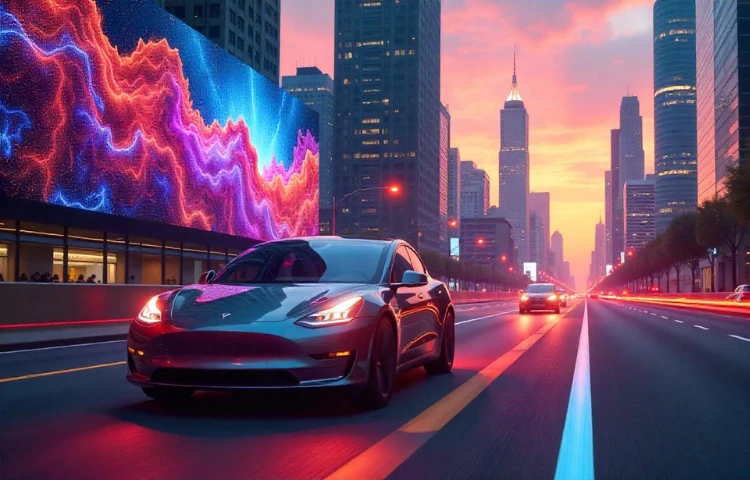

Artificial intelligence continues to drive transformative change across industries, with several groundbreaking developments capturing global attention. From Tesla’s expansion into AI-powered ride-hailing services to Baidu’s unveiling of advanced language models, the pace of innovation remains relentless. OpenAI’s new research tools, Adobe’s integration of third-party AI models into creative platforms, and the International Monetary Fund’s warning about AI’s environmental impact all highlight the diverse and far-reaching influence of AI technologies today. These milestones not only showcase rapid technological progress but also emphasize the importance of responsible innovation as AI reshapes the future.
Tesla has initiated a test run of its Full Self-Driving (FSD) supervised ride-hailing service in Austin, Texas, and the San Francisco Bay Area, targeting a preliminary group of employees. The service has already completed over 1,500 trips and accumulated 15,000 miles. This trial aims to refine Tesla’s self-driving network, supporting technologies like vehicle allocation and remote assistance. CEO Elon Musk announced that Tesla plans to officially launch the service in Austin by June and expects the technology to significantly impact the company’s financial performance by mid-2026. Initially, the service will use Model Y vehicles equipped with self-driving software, with plans to introduce a purpose-built autonomous vehicle, the Cybercab, starting next year. [New York Post]
On April 25, 2025, Baidu, the prominent Chinese technology and search engine company, unveiled its latest advancements in artificial intelligence with the launch of two new models: Ernie 4.5 Turbo and the reasoning model Ernie X1 Turbo. These releases signal Baidu’s ongoing investment in and commitment to enhancing its AI capabilities amid increasing competition within China’s rapidly evolving AI landscape. [Reuters]
In April 2025, OpenAI started rolling out a lightweight version of its Deep Research tool to all ChatGPT Free Users. This tool leverages the capabilities of OpenAI’s o3 model to perform extensive web browsing, data analysis, and synthesis, delivering comprehensive reports within a timeframe of 5 to 30 minutes.
Adobe announced it is adding image-generation artificial intelligence models from OpenAI and Alphabet’s Google to its Firefly app and bringing the app to mobile devices. Since 2023, Adobe has been developing its own AI models in its Firefly service to generate images and video clips, promising its customers that they won’t face legal liability for using the images and video created by those models. But last year, Adobe said it was open to also offering third-party models from ChatGPT creator OpenAI and others to its user base. [Reuters]
An IMF study outlined in this Earth Day edition of the newsletter highlights growing concerns about AI’s environmental impact, projecting that current trends could add between 1.3 and 1.7 gigatons of CO2 emissions from 2025 to 2030—akin to Italy’s five-year emissions. Though the report concludes that the economic benefits of AI will outweigh these emissions’ social costs, critics argue the social cost of carbon used in the study ($39/ton) underestimates real-world climate damages. AI-driven electricity consumption could reach 1,500 TWh by 2030, comparable to India’s total demand. [Axios]
As artificial intelligence continues to break barriers across industries, these latest developments from Tesla, Baidu, OpenAI, and Adobe remind us that innovation comes with both incredible opportunity and growing responsibility. Whether it’s redefining transportation, advancing creativity, or prompting urgent conversations about sustainability, AI’s influence is undeniable — and it’s only just beginning. Staying informed and adaptable will be key as we navigate this ever-evolving landscape, shaping a future where technology and humanity move forward together.
WEBINAR